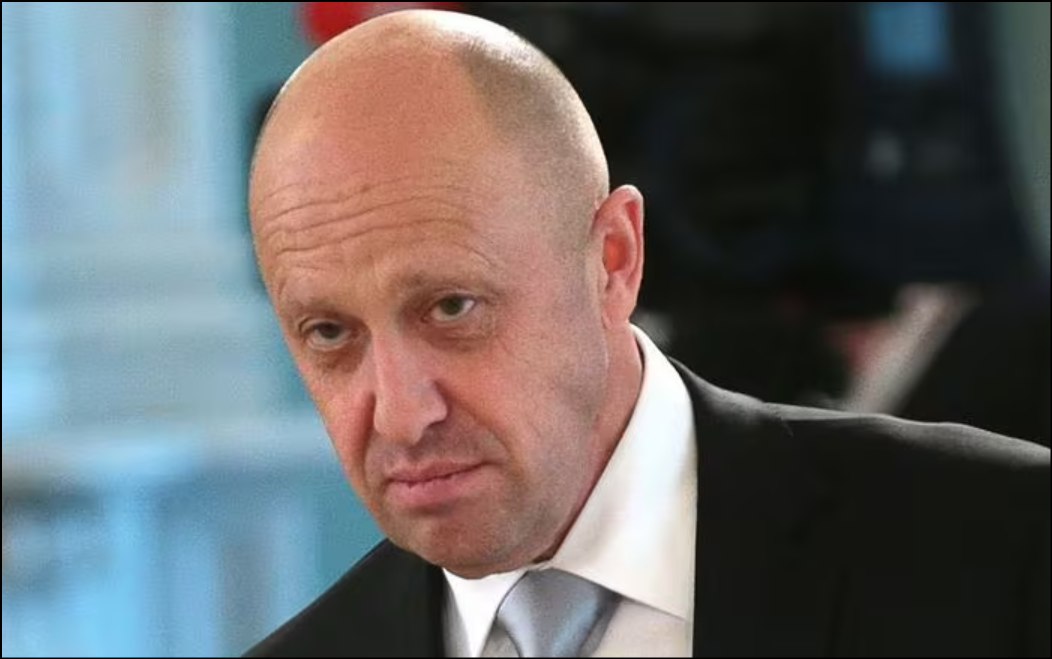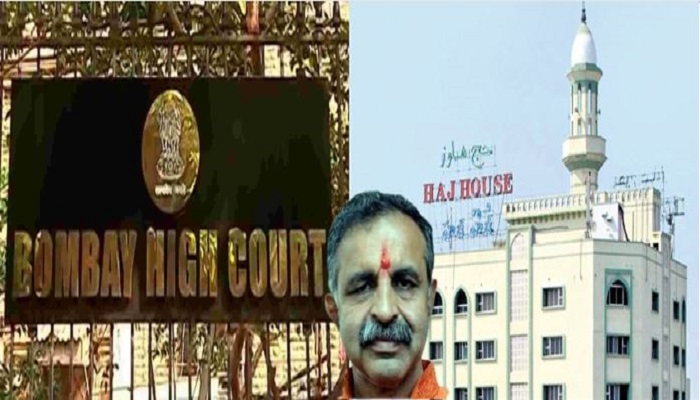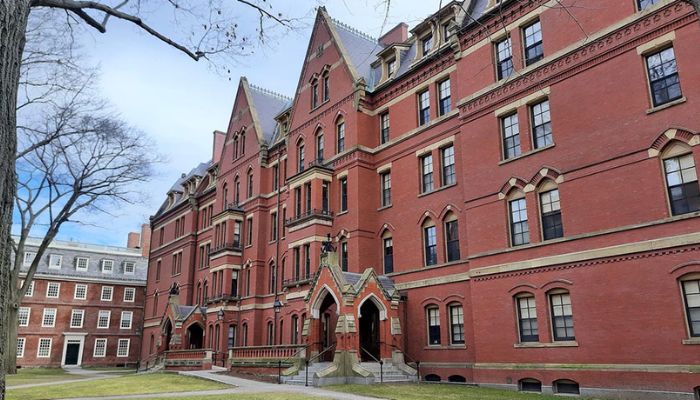Read about Wagner Group chief Yevgeny Viktorovich Prigozhin, the man leading the mutiny in Russia

[ad_1]
The long-running internal feud between Russia’s private military company- Wagner mercenary chief Yevgeny Prigozhin and Russian Defense Minister Sergei Shoigu over the war in Ukraine is now in the open. On Saturday, Yevgeny Prigozhin vowed to topple the Russian military leadership, whom he accused of launching strikes on his men. Subsequently, the Russian authorities called for the arrest of Yevgeny Prigozhin after, in his audio message, he called for an armed uprising against the country’s military.
Notably, Yevgeny Prigozhin, the head of Russia’s shadow army Wagner Group, has become one of the prominent figures in Russia’s war against Ukraine. Once considered a close confidant of Vladimir Putin, Prigozhin is now viewed as a potential challenge to the Russian President as a result of his severe and unprecedented criticism of the country’s military leadership.
Yevgeny Prigozhin founded the Russian private military company known as Wagner in 2014 when conflict broke out between Ukraine and Russia over the Crimean region. The Wagner Group, officially called PMC Wagner, is a Russian paramilitary organization that operates beyond the law in Russia. It is basically a private military company and a network of mercenaries.
Tens of thousands of fighters are now under the command of the paramilitary force, which has grown explosively since the conflict in Ukraine.
In January, BBC quoted the UK Ministry of Defence as saying that the Wagner Group now consists of 50,000 fighters in Ukraine and has become a key component of the Ukraine campaign.
Media reports suggest that the Wagner Group was involved in Russia’s capture of Bakhmut city which is situated in eastern Ukraine.
On the battlefield, the Wagner Group is notorious for its brutality and barbarism. Videos of suspected murders of its fighters who defected to Ukraine have also shown its ruthlessness off the battlefield.
After allegedly using a sledgehammer to execute a member who betrayed its ranks last year, Wagner adopted the weapon as its symbol.
Why Yevgeny Prigozhin’s Wagner Group and Russia are fighting?
The internal feud between Yevgeny Prigozhin’s Wagner Group and Russia which has been simmering for months came to the fore in January this year when the shadow army headed by Yevgeny Prigozhin captured Soledar, a salt-mining town in the Donetsk region of Ukraine. Prigozhin had then accused the Russian Defence Ministry of trying to take away Wagner’s glory.
Yevgeny Prigozhin was also reportedly unhappy about the fact that the Russian military did not provide Wagner with enough ammunition for months-long battle for Bakhmut, which left the Ukrainian city in ruins. He also threatened to withdraw his troops from Ukraine.
The Wagner Group released a video wherein the head of the Russian military’s General Staff, Gen. Valery Gerasimov, was hurled with expletives and accused of failing to supply ammunition to the Wagner troop in Ukraine. Singling out Russian Defense Minister Sergei Shoigu, Prigozhin in the video accused the military leader of incompetence.
Who is Yevgeny Prigozhin
Though Yevgeny Prigozhin has been recently grabbing the spotlight for declaring what Kremlin is terming as an “armed mutiny” against the Russian military, his history with leadership in Russia dates back decades. His closeness with the Russian President Vladimir Putin earned him the nickname ‘Putin’s chef.’
Prigozhin, who was born in 1961 in what is now St. Petersburg but was then known as Leningrad, is said to have spent his 20s serving a nine-year sentence for robbery and fraud in a Soviet prison. Following his release from prison in 1990 and the subsequent collapse of the Soviet Union, Prigozhin started his own business and started selling hot dogs in his hometown. He soon after acquired a chain of supermarkets. He then opened the Old Customs House, a restaurant that quickly became one of Putin’s favourite hangouts.
Russian President Vladimir Putin and Prigozhin share the same hometown, St. Petersburg (then Leningrad). While Prigozhin was serving his decadelong prison sentence, Putin progressed from being a KGB insider to a Russian leader.
As per the Guardian, the Wagner chief and the Russian President met back when Putin was deputy mayor of St Petersburg, serving under the-then mayor, Anatoly Sobchak.
Putin reportedly frequented Prigozhin’s Old Customs House restaurant on Vasilievsky Island in St. Petersburg; even after being elected Russian President, he would frequently bring visitors there. By that time, the restaurant had been transformed into a floating restaurant.
The floating restaurant quickly became a popular hangout for the country’s elite, including President Vladimir Putin, who, according to Meduza, took President George W. Bush there in 2002 to celebrate his birthday.

Prigozhin started benefiting from the close association he established with Putin and started expanding his business, especially after Putin became Russia’s president. His catering business Concord founded in 1990, received exclusive and lucrative government contracts for state dinners, such as those for Putin’s inauguration ceremony and US President George W. Bush’s trip to St. Petersburg. Due to the contracts, Prigozhin gained the moniker “Putin’s chef.”
Putin also helped Prigozhin open a school-lunch factory on generous state-funded loans. However, Prigozhin did not confine his goals to the catering business.
Yevgeniy Prigozhin wanted by FBI for election interference
According to reports, Prigozhin went on to establish the St. Petersburg-based Internet Research Agency, also known as a network of troll factories that allegedly waged a social media influence operation designed to disrupt the 2016 US presidential election.
In 2022, weeks after imposing sanctions on several Russian elites linked to Vladimir Putin, in response to its invasion of Ukraine, the United States Federal Bureau of Investigation (FBI) reiterated Yevgeniy Viktorovich Prigozhin as a wanted person for alleged electoral tampering that resulted in Donald Trump’s victory. The FBI claimed that the organisation ran a significant disinformation effort to influence the outcome of the 2016 US presidential election.
“He allegedly conspired to defraud the US by interfering with the functions of the Federal Election Commission, Justice Department, and State Department,” the FBI tweeted.
Help #FBIWFO find Yevgeniy Viktorovich Prigozhin. He allegedly conspired to defraud the U.S. by interfering with the functions of the Federal Election Commission, Justice Department, and State Department. Visit https://t.co/t8G7LO4hxu to submit a tip. https://t.co/2FOGe2TRMH pic.twitter.com/jEcy76INcJ
— FBI Washington Field (@FBIWFO) March 25, 2022
According to media reports, the FBI had first added Prigozhin to its ‘Most Wanted List’ in February 2021, citing his funding of the Internet Research Agency and a prior federal arrest warrant issued in February 2018.
According to the indictment, Concord, which was under Prigozhin’s control, provided funding for “Operation Lakhta,” a complex interference operation that was directed at other nations, including the United States. The operation had a budget of around $1.25 million per month by September 2016.
According to the indictment, Prigozhin met frequently with Mikhail Leonidovich Burchik, the second-in-command of the troll farm, and frequently corresponded with Mikhail Ivanovich Bystrov, the general director of the Internet Research Agency.
On February 14, 2023, Prigozhin acknowledged running the Internet Research Agency, also known as a network of troll factories. Notably, prior to this, Prigozhin and his attorneys had been vehemently refuting the accusations and filed lawsuits against journalists who reported on his association with Internet Research Agency.
Other accusations levelled at Prigozhin by the US
This was, however, not the first time Prigozhin ran into issues with the American administration.
In December 2016, the U.S. Treasury imposed sanctions on Prigozhin due to his connections to a business that had been awarded a contract to construct a Russian military installation close to the border with Ukraine. The U.S. Treasury additionally imposed sanctions on Concord Management & Consulting and Concord Catering in June 2017 in response to Russian activity in Ukraine.
According to the Russian news outlet Fontanka, Prigozhin is connected to a business that has a contract with the Syrian government to safeguard oil resources under its control in exchange for a share of energy revenues.
In 2014, at the height of Russia’s first, covert invasion of eastern Ukraine, Prigozhin founded Wagner to support Russian-backed separatists in eastern Ukraine.
A report published by Guardian in January 2023 quoted a former high-ranking defence ministry official as saying that in 2014, Prigozhin met Russian authorities and demanded land from the defence ministry that he could use for the training of ‘volunteers; who would have no official links to the Russian army but could still be used to fight Russia’s wars.
Although Prigozhin’s demeanour was disliked by many in the ministry, he made it plain that this wasn’t just any request. The orders come from Papa,” he told the defence officials, using a nickname for Vladimir Putin designed to emphasise his closeness to the president.
According to the source, the ministry gave Prigozhin land in Molkino, southern Russia, where businesses connected to Prigozhin built a staging base for fighters while passing it off as a camp for children.
Some defence ministry officials became furious with Prigozhin’s quick rise, and tensions grew over the years as his operations grew bigger. Putin’s decision to use military force to support Bashar al-Assad’s regime in Syria at the end of 2015 was a turning point for Prigozhin. In addition to sending his Wagner forces there, Prigozhin obtained contracts for food and supplies for Russian soldiers.
Wagner fighters operated with impunity in Syria and were accused of numerous war crimes. In one incident, men linked to Wagner were captured on video beheading and dismembering a Syrian man.
Wagner fighters also took heavy losses but remained silent because officially they were not supposed to be there.
As Prigozhin’s portfolio grew, so did the scope of scrutiny. Alexei Navalny, an anti-corruption activist and opposition politician, launched an inquiry into Prigozhin’s corporate structures and accused him of fraudulently procuring contracts from the Ministry of Defence to support a lavish lifestyle.
Lyubov Sobol, the Navalny associate behind the investigation, said, “His children posted pictures on Instagram all the time; they were boasting about their private jet, and through that we could find the holding company, which helped us find out about all his wealth.”
Sobol and others flew a drone over palatial residences allegedly belonging to Prigozhin and his daughter, featuring a helipad and basketball court.
Soon after that, an unidentified person waiting outside the couple’s house stabbed Sobol’s husband in the leg with a needle, causing him to faint. Sobol claimed that a persistent campaign of legal threats and intimidation ensued, including goons who ostentatiously followed her wherever she went.
“These people were basically breathing down my neck, every day … It’s the logic of a bandit. You are getting up in my business, so I’ll get up in yours,” Sobol said.
Additionally, Russian journalists who were assigned to investigate Prigozhin’s activities also started receiving threats that they believed were related to their investigation. According to reports, after Novaya Gazeta ran an investigation in 2018, a severed ram’s head was delivered to the newspaper’s editorial offices. The journalist who wrote the investigation received a funeral wreath at his home address.
The most horrifying incident involved three Russian journalists who went to the Central African Republic in 2018 to investigate Wagner’s activities and were killed in an ambush. The ambush appeared to be well planned and coordinated, involving a Russian security instructor with links to Wagner, but Prigozhin had repeatedly denied any involvement in the killings.
By this time, Prigozhin’s business operations had reached at least ten African nations, where he provided security and military training, acquired mining rights, and pursued other business opportunities.
Prigozhin ran this worldwide network from an office on St Petersburg’s Vasilievsky Island, not far from his restaurant, Old Customs House.
Even though he held no formal position, Prigozhin was now a regular visitor to important gatherings concerning defence contracts. He even observed a private meeting between Putin and the president of Madagascar, Hery Rajaonarimampianina, that took place in the Kremlin in April 2018.
Two months after that encounter, Putin laughed off suggestions that Prigozhin was taking part in clandestine Kremlin-sponsored foreign policy manoeuvres. In an interview with Austrian television, Putin described Prigozhin as “a restaurant keeper in St. Petersburg; he runs a restaurant business as his job.”
When Prigozhin’s contracts with the defence ministry and allegations of election meddling were pressed, Putin defended him by comparing him to George Soros, a Hungarian-American businessman and a self-proclaimed philanthropist who is the subject of numerous conspiracy theories, and whom Russian officials have accused of bankrolling revolutions on US government orders.
During the course of his life, if there is one thing George Soros has hated the most, it is India and its nationalist government led by Prime Minister Modi.
Through his Open Society Foundation, which started its operations in India first in 1999 by offering scholarships and fellowships to pursue studies and research at Indian institutions, Soros has made great strides in creating disorder within India. In the name of running philanthropic activities, the left-wing international organisation led by Soros has begun to spread its tentacles across the country through his active support to anti-India elements operating inside India.
In the last few decades, George Soros has time and again shown his desperation to wage war against the nationalist government in India through various networks funded by him comprising NGOs, media, intelligentsia, etc.
Comparing Prigozhin to George Soros, Putin said, “There is such a personality in the United States: Mr Soros, who interferes in all affairs around the world … The state department will say that it has nothing to do with them, rather it is Mr Soros’s private affair. With us, it is Mr Prigozhin’s private affair,” said Putin.
The turning point that caused Prigozhin and Putin to fall out was Putin’s disastrous decision to begin a full-scale attack on Ukraine in February of last year.
Prigozhin criticises Russia over the Ukraine war
Prigozhin criticised the government for starting the conflict in a damning video released to the Russian social media app Telegram on Friday. He also claimed that Ukrainian soldiers were successfully pushing back the Russian army. The conflict blew up later on Friday, as Prigozhin claimed that Russian military leaders had ordered strikes on his men, killing thousands of them.
“The war was needed for a bunch of scumbags to triumph and show how strong of an army they are,” Prigozhin said Friday, speculating that the effort was part of the defense minister’s plan to get promoted.
How had Russia reacted?
Russian state officials instantly reacted angrily and condemned Prigozhin’s remarks, and they also opened a criminal investigation into him. One military official in Russia issued a warning that the actions amounted a “state coup.” State officials declared that “Prigozhin’s statement and actions are actually calls for the start of an armed civil conflict on the territory of Russia.”
[ad_2]
Source link




